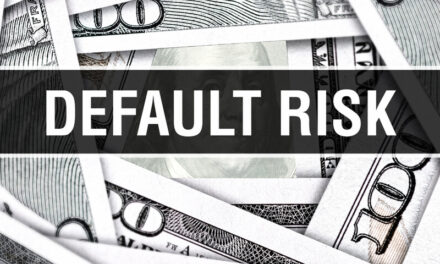The economy is booming, the stock market is enjoying a record bull run, consumer confidence is near an all-time high, unemployment is at a near-50-year low and employers are desperate to find qualified people to fill jobs.
From the outside looking in, all might seem rosy. But that’s not exactly the case a recent study by the Center for Financial Services Innovation (CFSI) shows.
A survey of about 5,000 Americans says just 28 percent are considered “financially health.”
Per MarketWatch:
“Financial health enables family stability, education, and upward mobility, not just for individuals today but across future generations,” the CFSI says. “Many are dealing with an unhealthy amount of debt, irregular income, and sporadic savings habits.”
About 17 percent of Americans are considered “financially vulnerable,” meaning they struggle in nearly every financial aspect of their lives and are living paycheck-to-paycheck. The other 55 percent of people are “financially coping,” meaning they struggle with some aspects of their financial lives.
Recent stock market volatility has not helped either, the study shows.
These findings are based on the CFSI Financial Health Score, a framework designed by CFSI to measure financial health more holistically by examining spending, saving, credit, and other indicators. Some 44% of respondents said their expenses exceeded their income in the past year and they used credit to make ends meet. Another 42% said they have no retirement savings at all.
They come on the heels of a previous study from personal-finance site Bankrate.com that found only 29% of Americans had 6 months or more of emergency savings and a nearly equal percentage said they had none. Indeed, most Americans would not be able to pay for an emergency expense of $1,000, a separate 2015 study showed.
The median income in the U.S. holds just $11,700 in savings according to a recent report by the Fed. The top 1 percent of U.S. households have a median savings of $1.1 million across a variety of accounts while the bottom 20 percent have no savings accounts, and the second-lowest 20 percent have just $26,450 saved.
What Can People Become More Financially Fit?
“We need to look beyond the headlines to metrics that will help us better understand the true state of Americans’ financial lives,” the study said.
The CFSI survey shows the broad statistics on the economy, a bull market, and unemployment rates often fail to capture the plight of Americans as individuals, said Mark Hamrick, senior economic analyst Bankrate.com. “The news surrounding the markets and the economy is critically important, but it doesn’t speak to the status of everyone,” he said.
Hamrick advised making two things a priority. “All of this is a call to action,” he said. “We need to make savings, both for retirement and for emergencies a higher priority, so that they aren’t the source of financial regret later in life.”




